The $3,500 Apple Vision Pro, as one might expect, has many features that beat the Meta Quest 3.
It has micro-OLED, high-resolution 4K displays, superior hand tracking (the Quest 3’s hand tracking can be unreliable), supports eye tracking, features sophisticated, high-end materials (metal-and-glass chassis vs. plastic), and more.
However, the Apple Vision Pro’s dominion over the Quest 3 isn’t a total sweep. Surprisingly, there are aspects of the Quest 3 that actually bests the Apple headset.
1. Better weight distribution
Journalists and influencers who tested the Apple Vision Pro have gushed over its hand-and-eye tracking capabilities, but the most common critical feedback I’ve seen is that the Apple headset is too damn heavy.
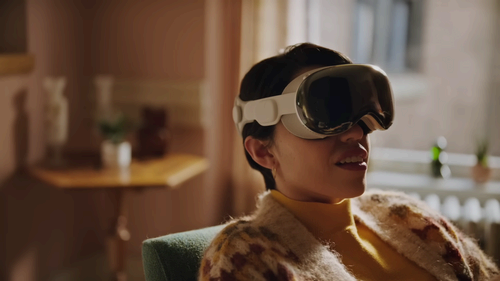
Credit: Apple
According to The Verge, the Vision Pro weighs about 1.4 pounds, give or take. The Quest 3, on the other hand, weighs about 1.1 pounds. In my eyes, it’s not just the weight delta that makes the Quest 3 seem lighter than the Vision Pro — the Meta headset likely has better weight distribution.
CNET remarked that the Vision Pro feels a bit too “top heavy.” Apple likely packed most of the components to the front of the head-mounted display. So even though a 1.4-pound headset should feel light, users will sense discomfort due to poor weight distribution.
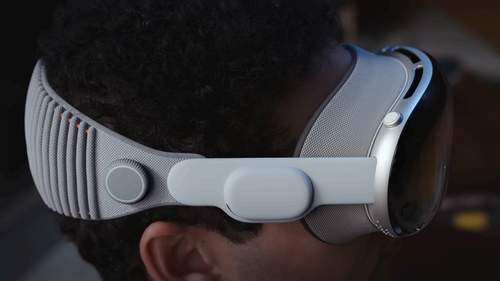
Credit: Apple
As a Meta Quest 3 owner, I can attest it feels comfortable and lightweight. However, its materials, compared to the Vision Pro, are far cheaper, from its flimsy, easy-to-soil nylon and polyester straps to its plastic chassis.
2. Access to Steam games
The Quest line is, of course, more established than the nascent Apple Vision Pro. As such, there’s a massive portfolio of mixed-reality and VR games for the Quest 3.
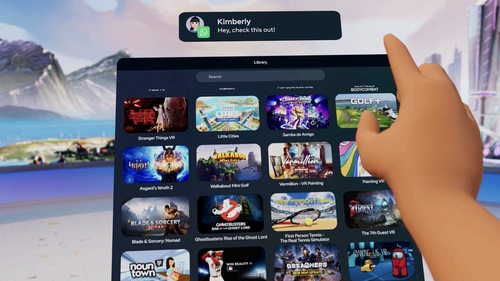
Credit: Meta
Apple announced that Vision Pro users will have access to 250 Apple Arcade games, including NBA 2K24 Arcade Edition, Sonic Dream Team, and more. However, as DigitalTrends pointed out, playing these games may feel more like a big-screen experience as opposed to feeling like you’re immersed inside a vast virtual world.
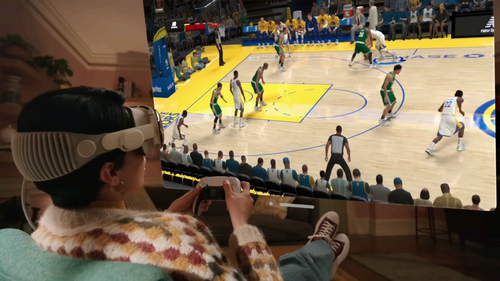
Credit: Apple
You’ll also find low-intensity games like Demeo (a D&D-inspired tabletop AR game), Super Fruit Ninja, and Just Hoops (basketball game) in Vision Pro.

Super Fruit Ninja
Credit: Apple
Still, this doesn’t come close to what the Meta Quest offers. Not only can you tap into the Quest Store for games, but if you have a really long USB-C cable like this one, and a VR-ready gaming laptop, you can dive into Steam’s wide variety of AR/VR games, too.
It’s also worth noting that Apple isn’t marketing Vision Pro as a gaming headset. It is, instead, a spatial computer that is designed to facilitate productivity, everyday tasks, and visual entertainment. As such, if you’re hoping that the high-res displays and reported top-of-the-line tracking will translate into a futuristic, cutting-edge gaming experience, you may end up feeling disillusioned.
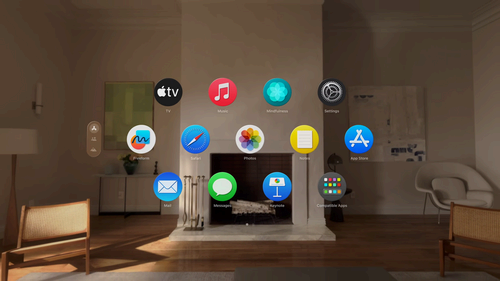
Credit: Apple
However, if you accept Vision Pro for what it is — an immersive extension of the Apple ecosystem — you should love it.
3. Totally wireless
The Vision Pro doesn’t necessarily tether you to an outlet. But it does come with a battery pack that tech YouTuber MKBHD remarked is a little heavier than expected. You can charge the battery pack, and once it’s juiced up, connect it to the Vision Pro to give it about 2 to 2.5 hours of battery runtime on a single charge.
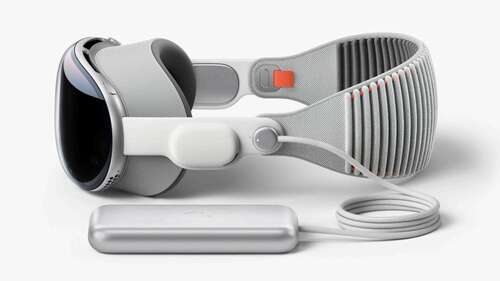
Credit: Meta
However, I’d argue that the external battery pack, attached to the Vision Pro via a proprietary connector, thwarts us from calling the Vision Pro a true wireless headset.
The Quest 3, on the other hand, is totally wireless.
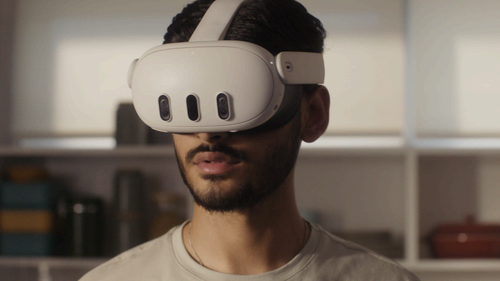
Credit: Meta
Once you charge the headset itself, you’re good to go. In my experience, it shares a similar battery life as the Vision Pro: 2 to 2.5 hours.
4. It has native YouTube, Netflix apps
In case you missed it, the Apple Vision Pro does not have native YouTube and Netflix apps.
This is a bummer because these apps on the Quest 3 are in-friggin’-credible. Similar to the Vision Pro, you can “pin” your YouTube or Netflix window anywhere in your virtual environment.
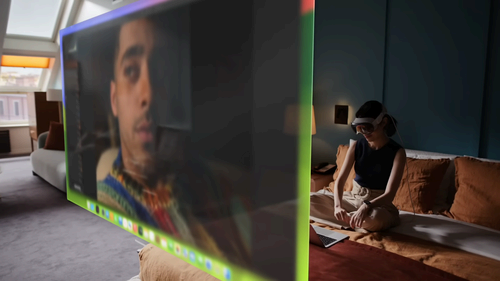
Credit: Apple
It’s worth noting, though, that you can still watch YouTube and Netflix on the Vision Pro via a browser.
5. Price
Yeah, I know. This is an obvious one, but it’s still worth pointing out. The Vision Pro has a starting price of $3,499. That is nearly $4,000 — far more than what most of us pay in rent.
The Apple tax on this headset is a hard pill to swallow.
Meanwhile, the Quest 3 starts at just $499. That being said, if you’re looking for an immersive gaming experience, grab the Quest 3. However, if you want a glitzy entertainment system that delivers multi-dimensional access to all things Apple, Vision Pro is your best bet.

